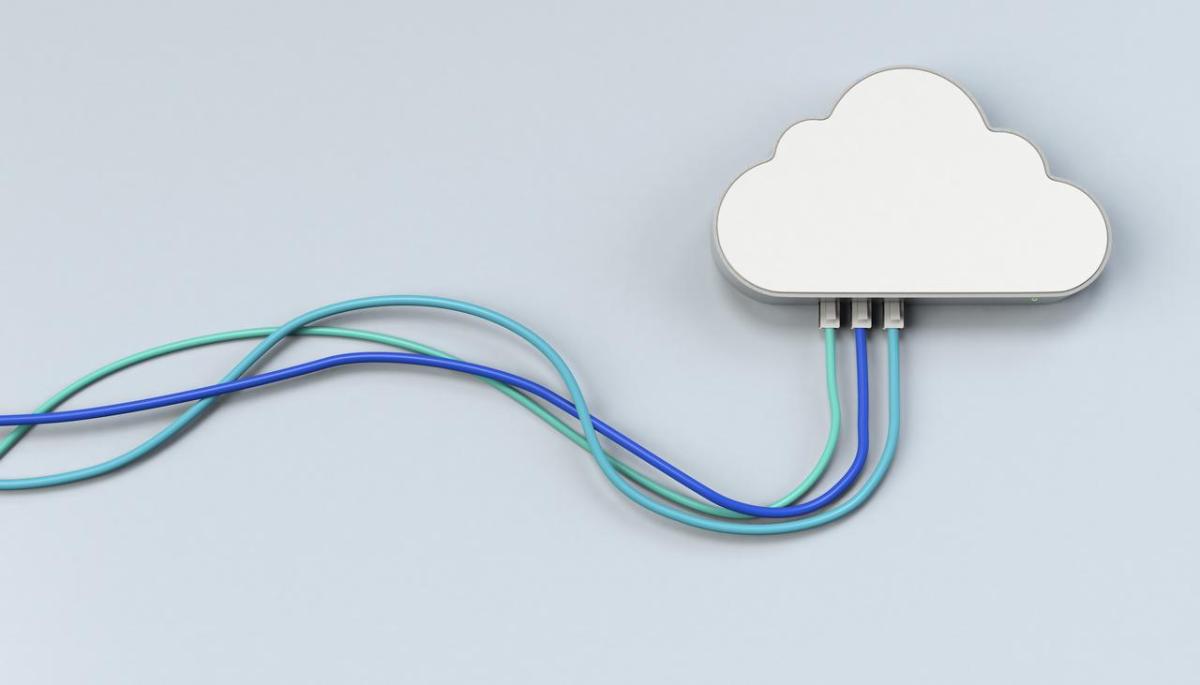The development of Information and Communication Technologies, ICTs, and the advance of connectivity have driven the growth of such innovative and revolutionary tools for companies and organisations as Cloud Computing, a concept that may seem abstract if we think of the literal meaning of ‘cloud’, but its usefulness is gaining more and more users.
This technology offers services and tools that are stored remotely (in the cloud), and run on users’ devices. It uses connectivity as a means to deliver them, as they are stored in the cloud.
In this way, companies can not only enjoy access to a wide range of software, storage services and other tools based on new technologies, but also store and manage the data of companies, organisations and individuals in such a way that they are always accessible.
How Cloud Computing works
Cloud platforms give instant access to the information stored there, as well as to a number of services and tools such as data analysis, Artificial Intelligence (AI) and the management of the Internet of Things (IoT), so that these tools and services are always up-to-date.
How is this possible? Cloud Computing works on the design of a network of connected servers. Thus, the servers take on the role of administrators, i.e. they are in charge of making the system work, and make it possible for users to connect to the cloud service.
In this way, users connect to the cloud via an intuitive and easy-to-use front-end application interface. The other part of the cloud computing system is the cloud service, known as the back end.
There are four types of cloud: public, hybrid private and multi-cloud, depending on whether the services are provided through shared servers with several users, such as Google Cloud or Amazon Web Services, or whether access is limited to a specific group of users; while hybrid clouds are the result of connecting a private cloud with a public cloud, and if the services of several cloud providers are used, it will be a multi-cloud.
Advantages of working in the cloud
The main advantage is that, as everything is stored in the cloud, access to it all is via the internet from anywhere on the planet, and from any device, which facilitates, among many other things, teleworking and hybrid work (face-to-face and remote) and saves companies from having and maintaining their own physical servers, and this reduces costs.
Updates are performed almost automatically by the company providing the Cloud services, without this being done on a device-by-device basis. This gives companies access to state-of-the-art tools and powerful connectivity infrastructures at no extra cost.
Agility is another of the main advantages offered by Cloud Computing. Companies and organisations become more efficient by having fast and secure access to innovative tools that make their work easier; they take advantage of the flexibility of digitalisation by offering tailor-made and scalable solutions, depending on the needs of the moment, and pay only for it. In this way, companies can launch more ambitious projects without having to think about large expenditures.
Without losing control of their digital resources, customers of these services enjoy constant maintenance of the connectivity infrastructures, as well as support for these, which is provided by the company that provides the Cloud Computing service, guaranteeing total integration with existing tools and infrastructures, without the need for extra investment.
Cybersecurity in the cloud
However, security is probably the most prominent feature of cloud computing. These services guarantee the total confidentiality of the information stored, as well as the prevention of cyber-attacks on these platforms, as it is capable of stopping any type of attack or hacking attempt by unknown users.
Sectors such as the public administration, banking, defence, health and industry, among others, already use this type of service, due to the reliability it provides. This is achieved thanks to the use of Blockchain, as data security is paramount: from data storage and management, to the administration of virtual desktops and tools especially focused on sales and customer management, such as CRM (Customer Relationship Management) applications or ERPs (Enterprise Resource Planning), or the creation of backup copies. Thus, in the event of a crisis, data recovery is fast and reliable.
Blockchain is a decentralised technology capable of tracking any access to the cloud. The use of both technologies has grown so much that there is even talk of Blockchain solutions in the cloud, facilitating their implementation in all types of companies.
Gaia-X: the European Cloud Computing Project
Following the success of cloud services already offered by large technology companies such as Amazon, Microsoft, Google, IBM, Tencent and Alibaba, Europe has launched a project called GAIA-X. It aims to be a secure alternative in a market led by the US and China, since data is already part of the infrastructure of the digital economy, as the Spanish Ministry of Economic Affairs and Digital Transformation points out.
GAIA-X is a European non-profit association of companies created to promote digital sovereignty in cloud environments. It aims to become a common European cloud-based data infrastructure, offering access control and re-use capabilities to those who produce information, through the creation of national hubs.
This project is within the framework of the Recovery, Transformation and Resilience Plan and is supported by Next Generation EU funds to promote the so-called data economy, which requires a highly developed cloud, as well as “infrastructure services to store and process data, an architecture for sharing data between the different actors and high-capacity, secure, resilient and reliable connectivity”, according to the Ministry.
